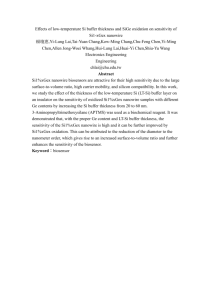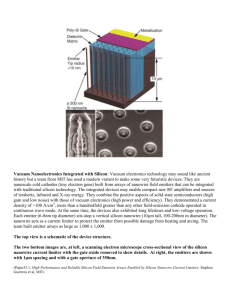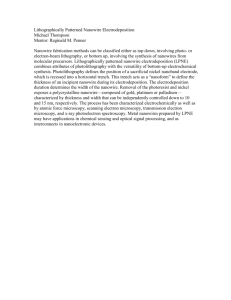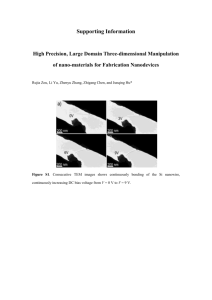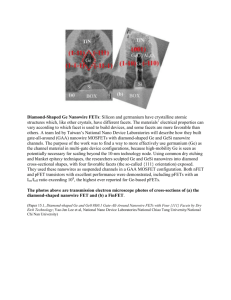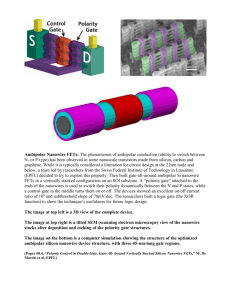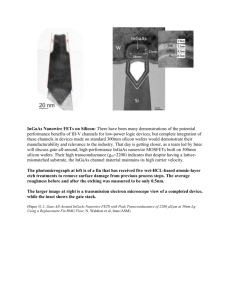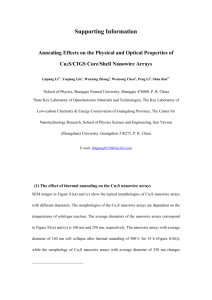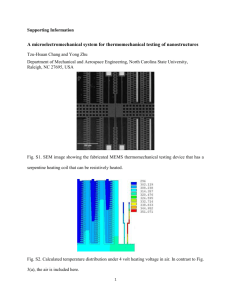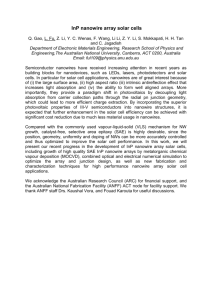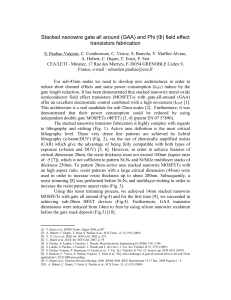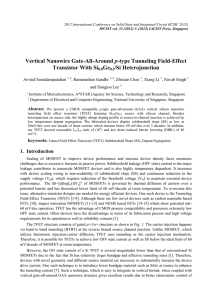annealing temperature effect on the sensitivity of sige nanowire for
advertisement
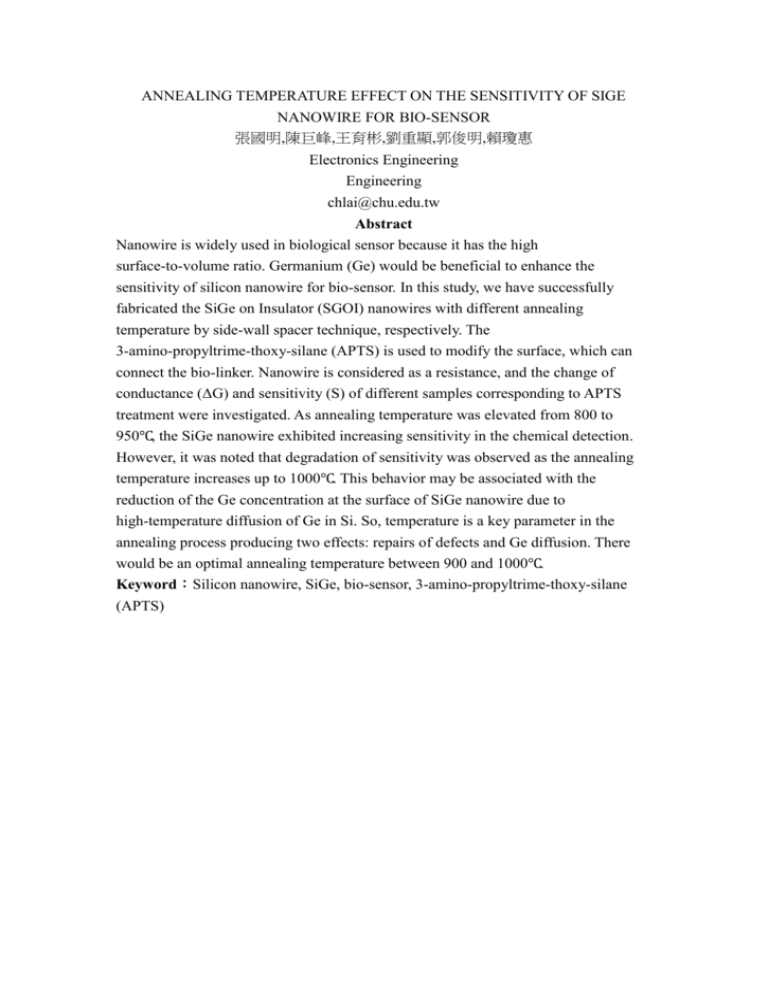
ANNEALING TEMPERATURE EFFECT ON THE SENSITIVITY OF SIGE NANOWIRE FOR BIO-SENSOR 張國明,陳巨峰,王育彬,劉重顯,郭俊明,賴瓊惠 Electronics Engineering Engineering chlai@chu.edu.tw Abstract Nanowire is widely used in biological sensor because it has the high surface-to-volume ratio. Germanium (Ge) would be beneficial to enhance the sensitivity of silicon nanowire for bio-sensor. In this study, we have successfully fabricated the SiGe on Insulator (SGOI) nanowires with different annealing temperature by side-wall spacer technique, respectively. The 3-amino-propyltrime-thoxy-silane (APTS) is used to modify the surface, which can connect the bio-linker. Nanowire is considered as a resistance, and the change of conductance (ΔG) and sensitivity (S) of different samples corresponding to APTS treatment were investigated. As annealing temperature was elevated from 800 to 950℃, the SiGe nanowire exhibited increasing sensitivity in the chemical detection. However, it was noted that degradation of sensitivity was observed as the annealing temperature increases up to 1000℃. This behavior may be associated with the reduction of the Ge concentration at the surface of SiGe nanowire due to high-temperature diffusion of Ge in Si. So, temperature is a key parameter in the annealing process producing two effects: repairs of defects and Ge diffusion. There would be an optimal annealing temperature between 900 and 1000℃. Keyword:Silicon nanowire, SiGe, bio-sensor, 3-amino-propyltrime-thoxy-silane (APTS)
